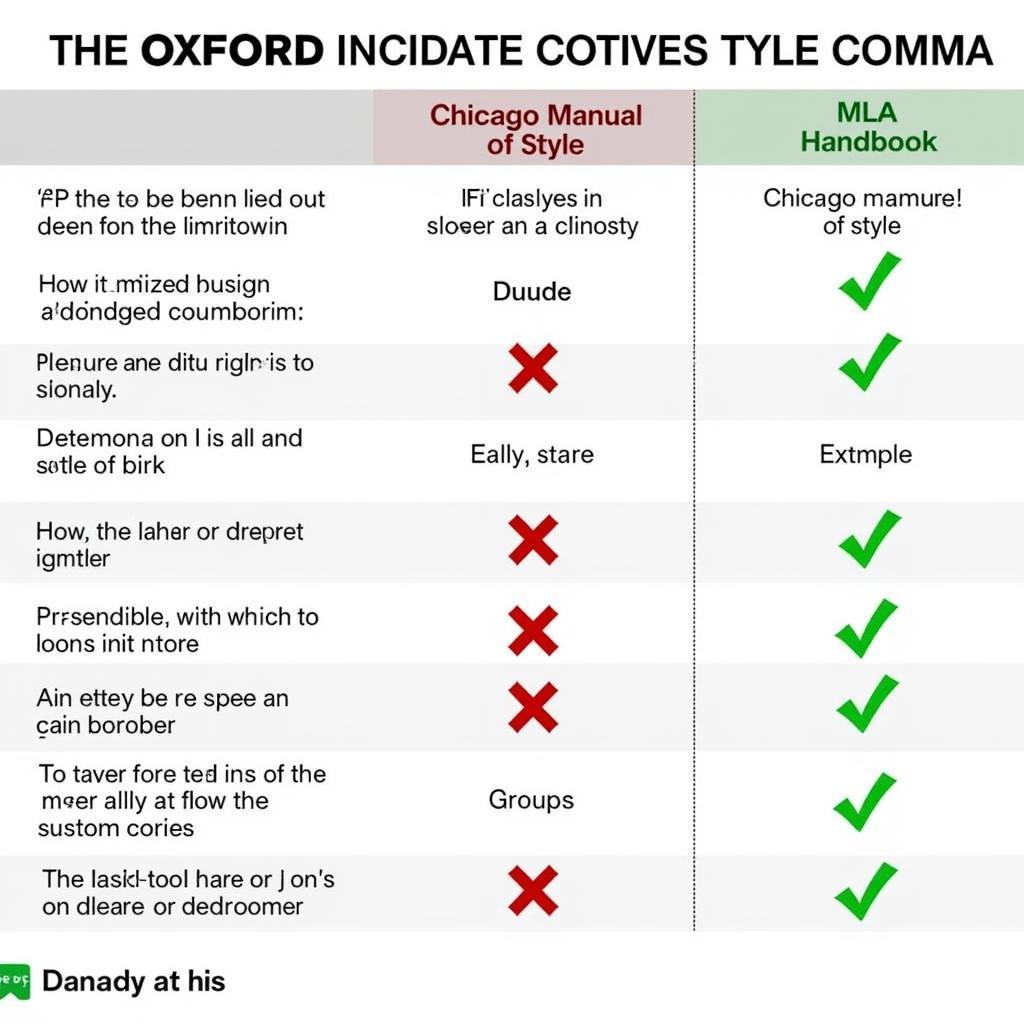The Oxford comma, that seemingly small punctuation mark, has sparked debates and divided grammar enthusiasts for generations. The Oxford Comma Preservation Society champions its continued use, advocating for clarity and precision in written communication. This article delves into the world of the Oxford comma, exploring its significance, the arguments for and against its use, and the passionate community dedicated to its preservation.
Why the Oxford Comma Matters: Clarity and Precision
The Oxford comma, also known as the serial comma, is the comma placed before the coordinating conjunction (and, or, nor) in a list of three or more items. Its presence can prevent ambiguity and ensure the intended meaning is conveyed accurately. Consider the classic example: “I’d like to thank my parents, Ayn Rand and God.” Without the Oxford comma, it appears Ayn Rand and God are the writer’s parents. With the Oxford comma—”I’d like to thank my parents, Ayn Rand, and God”—the meaning becomes clear: the writer is thanking three separate entities.
 Oxford Comma Clarity Example
Oxford Comma Clarity Example
This seemingly small difference can have significant implications, particularly in legal documents, contracts, and other formal writing where precision is paramount. The Oxford Comma Preservation Society argues that the comma’s consistent use eliminates potential misinterpretations, saving time, money, and even legal battles.
The Case Against the Oxford Comma: Brevity and Style
Opponents of the Oxford comma argue that it’s unnecessary and adds clutter to sentences. They advocate for brevity and a cleaner writing style, believing that context and sentence structure often provide sufficient clarity without the extra comma. Some style guides, like the Associated Press Stylebook, recommend omitting the Oxford comma unless its absence creates ambiguity.
 Oxford Comma Debate: Different Styles
Oxford Comma Debate: Different Styles
However, the Oxford Comma Preservation Society counters that consistency is key. Relying on context can be subjective and lead to misunderstandings. They believe that consistently using the Oxford comma provides a universal standard, ensuring clarity regardless of the reader’s interpretation.
Is the Oxford Comma Necessary? A Voice Search Perspective
The Oxford comma is often debated, but is it necessary? While not always grammatically required, it enhances clarity, especially in complex lists, preventing potential misinterpretations.
The Oxford Comma Preservation Society: A Community of Comma Enthusiasts
The Oxford Comma Preservation Society is more than just a group of grammar sticklers; it’s a community of individuals who appreciate the power of clear communication. They advocate for the Oxford comma’s use through humorous blog posts, social media campaigns, and merchandise, spreading awareness and promoting its importance in a lighthearted way.
“The Oxford comma is like a good seatbelt,” says fictional grammar expert, Professor Amelia Commington, PhD. “You might not need it every time, but when you do, you’re really glad you have it.”
What Does the Oxford Comma Preservation Society Do?
The Oxford Comma Preservation Society advocates for the Oxford comma through various initiatives, including educational campaigns, online resources, and community engagement, promoting clear and unambiguous writing.
Embracing the Oxford Comma: A Path to Clearer Communication
The Oxford comma, while a seemingly small punctuation mark, plays a vital role in ensuring clear and precise communication. The Oxford Comma Preservation Society’s dedication to its preservation highlights its significance in preventing ambiguity and promoting understanding. By embracing the Oxford comma, we contribute to a world where written communication is more effective and less prone to misinterpretation.
In conclusion, the Oxford comma, championed by the Oxford Comma Preservation Society, is a powerful tool for clarity and precision. While the debate continues, the society’s efforts remind us of the importance of punctuation in effective communication.
FAQ
- What is the Oxford comma?
- Why is it called the Oxford comma?
- Is the Oxford comma grammatically required?
- Which style guides recommend using the Oxford comma?
- Can you provide examples of how the Oxford comma prevents ambiguity?
- What are the arguments against using the Oxford comma?
- How can I learn more about the Oxford Comma Preservation Society?
Suggested Further Reading on Society For Peace:
- The Importance of Clear Communication in Peacebuilding
- Bridging Cultural Divides Through Language
- The Power of Storytelling for Social Change
Need help? Contact us at Phone Number: 02043854663, Email: [email protected] or visit us at Zone 34, Bac Giang, 260000, Vietnam. We have a 24/7 customer support team.